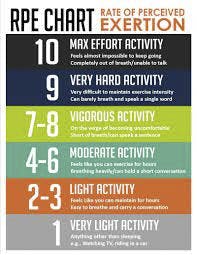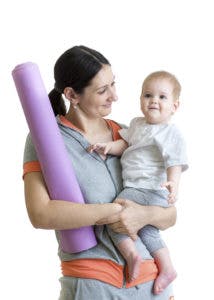Breastfeeding and Exercise
Exercise and Breastfeeding: Common Concerns
Regular exercise is an important addition to the postpartum period for both physical and emotional benefits. Exercising can help speed up the process of physically recovering from birth, as well as help improve sleep and reduce stress. Some women report concerns regarding exercising while breast feeding including: decreased milk output, increased lactic acid in milk, and decreased milk acceptance by the child. Recent studies have shown that these concerns are not supported and that exercise is safe for breastfeeding women and their babies.
Exercise will not reduce milk output – so long as hydration is adequately maintained. It’s important to increase water intake before, during, and after exercise since water will be lost through both sweat and milk production. Studies show that mild to moderate intensity exercise (walking, light jogging, yoga, etc) does not lower acceptance of milk post-exercise either. There may be a minimal increase in Lactic Acid (a substance our bodies produce with activity) in breast milk following high intensity exercise, but that was not shown to lower the baby’s acceptance either. So it is safe for both of you to get back to exercise while breastfeeding!
Exercise Guidelines while Breastfeeding
There are some steps post-partum moms can take to make exercising more tolerable and more productive while breastfeeding!
- Increase water intake on days that you exercise
- Ensure adequate caloric intake on exercise days to best support both exercise and breastfeeding demands
- Nurse/pump before you exercise to make working out more comfortable
- Find a bra that is supportive but not too compressive. It can be challenging to find a bra that fits both pre- and post-nursing, but consistently pumping pre-exercise can help with finding a size that fits well
- Add in calcium and vitamin D supplements if diet does not provide enough of these vitamins. Breastfeeding can cause a decrease in bone mineral density, so supporting bone health is important throughout (plus exercise is a great way to increase bone mineral density!)
- Avoid strenuous/high intensity exercise until after you have been evaluated by your doctor and your physical therapist. Mild exercise is well tolerated initially postpartum, but make an appointment with one of our PTs at Progress PT – Midlothian to evaluate your readiness for more intense exercise!
How to Measure Intensity?
How do you know if you are exercising too hard or just enough? The Rate of Perceive Exertion (RPE) Scale is useful to put a number on how hard you are working. This scale can be used for any activity (including formal exercise and yard/housework) to gauge intensity. This is useful both for yourself to keep track of how you progress because as an exercise starts to feels less strenuous you know you are getting stronger! It is also useful for your PT so that they can know how you are tolerating activity and better prescribe exercise.
Generally, during the early postpartum period it is safest to stay within the 1-5 range until cleared by your PT.


